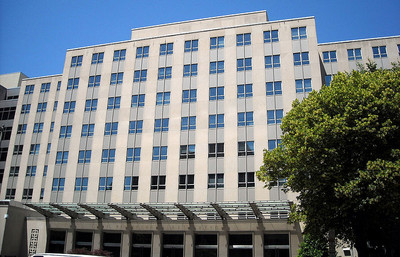
The gradual erosion of trust in authoritative figures and institutions—politicians, bureaucrats, corporations and industry leaders, universities, the media—has arguably made the best think tanks grow in importance as one remaining site of reliable, unbiased, widely-trusted information. Yet a brief episode yesterday showed just how fragile that status can be. On Tuesday morning, Sen. Elizabeth Warren sent a critical letter to the Brookings Institution, and within hours it had spurred the resignation of one of the think tank’s nonresident senior fellows. It’s not every day that the left-of-center think tank finds itself at odds with Warren, and it’s even rarer for an institution of Brookings’s reputation to be associated with bad press and hasty resignations. “Elizabeth Warren challenges Brookings over research backed by industry,” read the headline in the Washington Post, which broke the story. “Top Brookings economist forced out over biz-backed study,” announced The Hill. At issue was a study criticizing a proposed regulation that would impose fiduciary obligations on personal financial advisors—a measure backed by Sen. Warren, President Obama, and some Democrats in Congress. The study was co-authored by Robert Litan, commissioned by Economists, Inc., and funded by the Capital Group, an asset management firm that opposes the new rule. The Capital Group reviewed and commented on an outline of the study and paid Litan nearly $40,000 for his work. Congressional testimony submitted by Litan in July lists his affiliation with Brookings and discloses the Capital Group funding, but says that the views within are his own.
At issue is whether these disclosures clear Litan, or Brookings, of misrepresenting industry-funded work as neutral scholarship. Warren thinks not: in the letter, she asks why “a Brookings-affiliated expert is allowed to use that affiliation to lend credibility” to industry claims, criticizes the study as “highly compensated and editorially compromised work on behalf of an industry player seeking a specific conclusion,” and says “the funding sources of some Brookings-affiliated researchers call into question the independence of their research and its conclusions.” This is awfully strong language, especially uncommon for such a staid part of D.C. life.
The suggestion that respected, supposedly-neutral institutions could be producing biased work calls to mind last year’s New York Times expose on foreign funding of major think tanks. In fact, that’s the impression given by the headlines—when the Post, for instance, says that Warren is challenging Brookings “over research backed by industry,” it sounds as though Brookings’s own research was being called into question. But although corporate funding of think tanks is a real concern, it’s not what’s going on here. Instead, this controversy revolves around the slightly more ambiguous problem of institutional affiliation in settings that draw only indirectly on the institution.
This problem is inevitable in the political-academic-media-think tank nexus of Washington. Many prominent figures inhabit roles in a variety of these sectors, and in specific contexts it can be difficult to discern in what capacity they’re speaking or acting—especially since the connection is often, by intention, left unspoken. Warren’s letter refers to this possibility: was Litan’s expertise consulted because of his industry affiliation or his Brookings affiliation? Was his Brookings affiliation taken as tacit evidence that his work would be reliable and rigorous, even if not published under Brookings’s aegis? Can the reader of his study assume that Brookings might have published the same document?
These questions suggest a broader, and murkier, standard of credibility for think tanks than the more straightforward standard implied by the funding question. Of course, there’s nothing unethical or deceptive about one person enjoying affiliations with multiple institutions. But at a time when expertise is already subjected to corrosive skepticism, think tanks have to be especially careful of the implied use of their reputations. A reputation for quality and integrity is precious—difficult to earn, and even more difficult to regain once lost. The study at the core of this controversy is not Brookings’s work, but in an important (if largely implicit) sense, it bears Brookings’s name—meaning that the institution has to deal with the bad press and reputational cost either way. A resignation is a drastic step that will lead to a day or two of bad press, but it may have been the only way to effectively mop up the damage over the long run. This is an exacting measure of scrutiny, and it was enforced in a very public way. Other reputable think tanks are surely watching.
Click to
View Comments